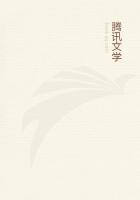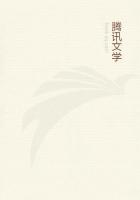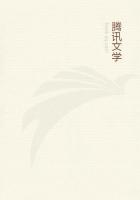But I have hope, still, that I may find sympathy and comprehension among some, at least, of my audience, as I proceed to examine the ancient realist schools of Alexandria, on account of their knowledge of the modern realist schools of Germany. For I cannot but see, that a revulsion is taking place in the thoughts of our nation upon metaphysic subjects, and that Scotland, as usual, is taking the lead therein. That most illustrious Scotchman, Mr. Thomas Carlyle, first vindicated the great German Realists from the vulgar misconceptions about them which were so common at the beginning of this century, and brought the minds of studious men to a more just appreciation of the philosophic severity, the moral grandeur, of such thinkers as Emmanuel Kant, and Gottlieb Fichte. To another Scotch gentleman, who, I believe, has honoured me by his presence here to-night, we owe most valuable translations of some of Fichte's works; to be followed, I trust, by more. And though, as a humble disciple of Bacon, I cannot but think that the method both of Kant and Fichte possesses somewhat of the same inherent defect as the method of the Neoplatonist school, yet I should be most unfair did I not express my deep obligations to them, and advise all those to study them carefully, who wish to gain a clear conception either of the old Alexandrian schools, or of those intellectual movements which are agitating the modern mind, and which will, I doubt not, issue in a clearer light, and in a nobler life, if not for us, yet still for our children's children for ever.
The name of Philo the Jew is now all but forgotten among us. He was laughed out of sight during the last century, as a dreamer and an allegorist, who tried eclectically to patch together Plato and Moses.
The present age, however, is rapidly beginning to suspect that all who thought before the eighteenth century were not altogether either fools or impostors; old wisdom is obtaining a fairer hearing day by day, and is found not to be so contradictory to new wisdom as was supposed. We are beginning, too, to be more inclined to justify Providence, by believing that lies are by their very nature impotent and doomed to die;that everything which has had any great or permanent influence on the human mind, must have in it some germ of eternal truth; and setting ourselves to separate that germ of truth from the mistakes which may have distorted and overlaid it. Let us believe, or at least hope, the same for a few minutes, of Philo, and try to find out what was the secret of his power, what the secret of his weakness.
First: I cannot think that he had to treat his own sacred books unfairly, to make them agree with the root-idea of Socrates and Plato.
Socrates and Plato acknowledged a Divine teacher of the human spirit;that was the ground of their philosophy. So did the literature of the Jews. Socrates and Plato, with all the Greek sages till the Sophistic era, held that the object of philosophy was the search after that which truly exists: that he who found that, found wisdom: Philo's books taught him the same truth: but they taught him also, that the search for wisdom was not merely the search for that which is, but for Him who is; not for a thing, but for a person. I do not mean that Plato and the elder Greeks had not that object also in view; for I have said already that Theology was with them the ultimate object of all metaphysic science: but I do think that they saw it infinitely less clearly than the old Jewish sages. Those sages were utterly unable to conceive of an absolute truth, except as residing in an absolutely true person; of absolute wisdom, except in an absolutely wise person; of an absolute order and law, except in a lawgiver; of an absolute good, except in an absolutely good person: any more than either they or we can conceive of an absolute love, except in an absolutely loving person. I say boldly, that I think them right, on all grounds of Baconian induction. For all these qualities are only known to us as exhibited in persons; and if we believe them to have any absolute and eternal existence at all, to be objective, and independent of us, and the momentary moods and sentiments of our own mind, they must exist in some absolute and eternal person, or they are mere notions, abstractions, words, which have no counterparts.
But here arose a puzzle in the mind of Philo, as it in reality had, we may see, in the minds of Socrates and Plato. How could he reconcile the idea of that absolute and eternal one Being, that Zeus, Father of Gods and men, self-perfect, self-contained, without change or motion, in whom, as a Jew, he believed even more firmly than the Platonists, with the Daemon of Socrates, the Divine Teacher whom both Plato and Solomon confessed? Or how, again, could he reconcile the idea of Him with the creative and providential energy, working in space and time, working on matter, and apparently affected and limited, if not baffled, by the imperfection of the minds which he taught, by the imperfection of the matter which he moulded? This, as all students of philosophy must know, was one of the great puzzles of old Greek philosophy, as long as it was earnest and cared to have any puzzles at all: it has been, since the days of Spinoza, the great puzzle of all earnest modern philosophers.
Philo offered a solution in that idea of a Logos, or Word of God, Divinity articulate, speaking and acting in time and space, and therefore by successive acts; and so doing, in time and space, the will of the timeless and spaceless Father, the Abysmal and Eternal Being, of whom he was the perfect likeness. In calling this person the Logos, and ****** him the source of all human reason, and knowledge of eternal laws, he only translated from Hebrew into Greek the name which he found in his sacred books, "The Word of God." As yet we have found no unfair allegorising of Moses, or twisting of Plato. How then has he incurred this accusation?













